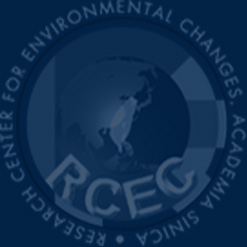

Yuan, Mei-Hua袁美華
Assistant Research Fellow
Research Interests
Dr. Mei-Hua Yuan’s research highlights the essential role of ecosystem services in sustainable development, with a focus on the food-energy-water (FEW) nexus and socio-ecological systems. Her previous work encompasses the development of sustainability indicators from a FEW nexus perspective at a global scale, the assessment of FEW nexus sustainability in key cities in Taiwan and the Netherlands to identify urban solutions, and an analysis of synergies and trade-offs between water and energy production at landfill sites. Her contributions also include evaluating the cascade benefits of ecosystem services, integrating these services into terrestrial conservation planning, addressing urban water scarcity through water tariff design, and emphasizing an integrated approach to ecosystem services and sustainable development through the lens of the FEW nexus.
Dr. Mei-Hua Yuan's recent research includes several key studies: Principles of Food-Energy-Water Nexus Governance, which examines governance frameworks for managing interconnected resources; Nature-Based Solutions for Securing Contributions of Water, Food, and Energy in an Urban Environment, focusing on implementing natural solutions to enhance urban sustainability; and Exploring Coral Reef Benefits: A Systematic SEEA-Driven Review, which provides a comprehensive assessment of coral reef ecosystem services using the system of environmental and economic accounting framework.
Representative Publications
Mei-Hua Yuan, Kuan-Ting Lin, Shu-Yuan Pan, Chih-Kai Yang (2024) "Exploring coral reef benefits: A systematic SEEA-driven review." Science of The Total Environment: 175237.
Mei-Hua Yuan, Shang-Lien Lo (2022) "Principles of food-energy-water nexus governance." Renewable and Sustainable Energy Reviews 155: 111937.
Mei-Hua Yuan, Fang-Chen Lo, Chang-Ping Yu, Hsin-hsin Tung, Yu-Sen Chang, Pei-Te Chiueh, Hsin-Chieh, Huang, Chao-Chin Chang, Chung-Yu Guan, Chun-Wei Wu, Zi-Xuan Xu, Shang-Lien Lo (2022) "Nature-based solutions for securing contributions of water, food, and energy in an urban environment." Environmental Science and Pollution Research 1-9.
Mei-Hua Yuan*, Pei-Te Chiueh, Shang-Lien Lo (2021), " Measuring urban food-energy-water nexus sustainability: Finding solutions for cities." Science of The Total Environment 752 (1920): 141954. (SCI)
Mei-Hua Yuan*, Shang-Lien Lo (2020), "Ecosystem services and sustainable development: Perspectives from the food-energy-water nexus." Ecosystem Services 46. (SCI)
Mei-Hua Yuan*, Shang-Lien Lo, (2020) " Developing indicators for the monitoring of the sustainability of food, energy, and water." Renewable and Sustainable Energy Reviews 109565. (SCI)
Mei-Hua Yuan*, Pei-Te Chiueh, Shang-Lien Lo, (2019) " Understanding synergies and trade-offs between water and energy production at landfill sites." Science of The Total Environment 687 (10), 152-160. (SCI)
Mei-Hua Yuan*, Pei-Te Chiueh, Shang-Lien Lo, (2019) " Embedding scarcity in urban water tariffs: mapping supply and demand in North Taiwan." Environmental Earth Sciences 78(10), 325. (SCI)
Highlights
Dr. Yuan served as the assistant research fellow at the research center for environmental changes, academia SINICA from August 2021. She continues to have a strong interest in the sustainability of coupled human-natural systems grounded in empirical evidence and topics like ecosystem services assessment, ecological economics, and food-energy-water nexus.
Ecosystem services and sustainable development: the maintenance of the total natural capital stocks has received increased attention worldwide for its ability to achieve sustainable development. However, the claim that ecosystem services contribute to sustainability has not been sufficiently verified. In this study, we explore how major ecosystem functions affect food, energy, and water sustainability. This research addresses the importance of ecosystems and services provided, which sustainability depends on. The results show that ecosystem services are indispensable keys to successfully achieving sustainable development goals.
Developing indicators for the monitoring of the sustainability of food, energy, and water: in this study, a transparent methodology that can be used to develop a set of newly linked indicators that can be used to compare water-food-energy sustainability in different geographical areas is developed. By focusing on providing a general picture of the food-energy-water sustainability, this study proposes an indicator on a national scale. The resulting “Linked Indicators for FEW AvailabilitY” (LIFEWAY) is an integrated indicator that measures the sustainability achievements for a country. This study provides an overview of the FEW sustainability for 42 developed and developing countries. It can be used to analyze specific issues, and allows regional and national solutions to be developed.
Measuring urban food-energy-water nexus sustainability: this study develops an indicator system to guide the implementations and optimize urban sustainability. A qualitative approach is employed to form the priority strategies in in four selected cities: Amsterdam, Eindhoven, Taipei, and Tainan. The results show that renewable energy plays an essential role in the food-energy-water nexus. In addition, we also observed that future work should focus on technological innovation. The results can guide managers to develop possible solutions that ensure resources are applied successfully according to the visions of multiple perspectives and help the relevant ministries to improve future consultation plans.
Understanding synergies and trade-offs between water and energy nexus: this study analyzes the links between water-energy nexus at a restored landfill site in Taipei City, Taiwan. The study tracks leachate and methane production at the site over the time periods when the landfill was actively receiving waste and after its closure and since its restoration. The results of model simulation of leachate yield and methane collection under different conditions show that energy and water production changed considerably during the time span under consideration. We identify a synergy between energy generation and water volume during the operation phase, and show that no trade-offs between energy generation and water volume were observed during any of the phases studied.
Embedding scarcity in urban water tariffs: the objective of this work is to design a water-pricing model that better signals the value of water scarcity by considering water supply and demand at the same time. The case study of the Taipei Water Resource Domain, Taiwan is used to illustrate the method. By calculating the supply, demand, and budget of water resources in northern Taiwan, this study also determines the visible spatial distribution of water scarcity. This demonstration illustrates a pathway for the implementation of a proposed scarcity-based pricing policy as a signal for users to adjust their water consumption in a proactive manner.
